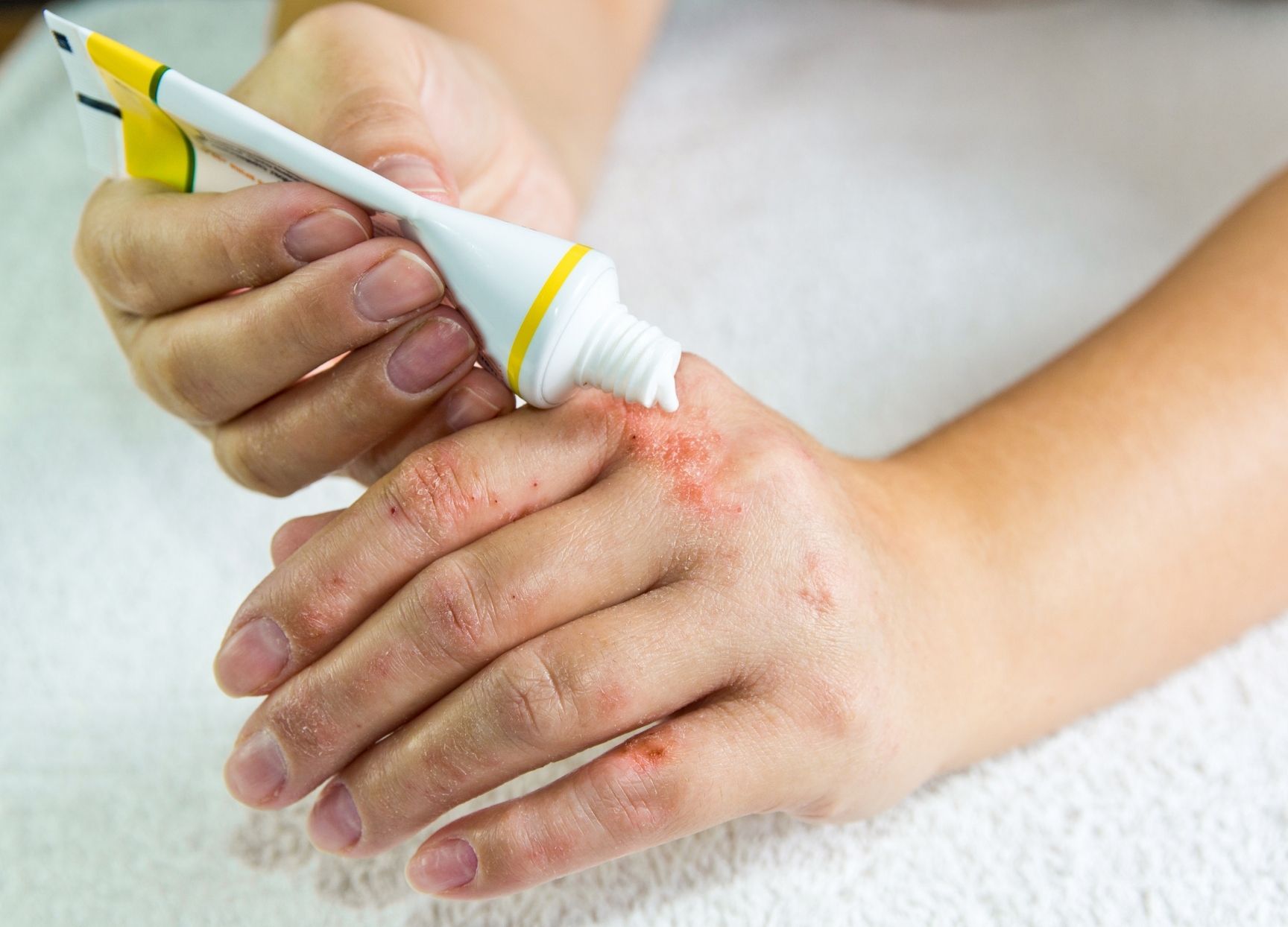Dr Chris Rutkowski
Consultant Allergist
Specialist expertise: Adult Allergy, Drug Allergy, Urticaria, Angioedema, Anaphylaxis, Allergy, Food Allergy, Provocation Food Challenges, ISAC Test, Anti IgE Treatment, Immunotherapy, Hay fever, Rhinitis.
Contact allergies, also known as allergic contact dermatitis, are a reaction to substances such as metals, scents and latex. This can cause skin reactions including skin rashes, swelling, itching, and dry skin.

Contact dermatitis is a type of eczema that causes skin reactions such as dry skin, a rash, or bumps and blisters and is caused by direct contact with a substance or an allergic reaction.
Contact dermatitis is caused by direct contact with a substance or an allergic reaction
Contact dermatitis is usually treated with emollients (moisturisers), which you rub on your skin to prevent it becoming dry and irritated.
Irritant contact dermatitis is a form of contact dermatitis, a skin reaction that can result in dryness, pain, swelling and blistering of the skin. People who have atopic eczema usually have an increased risk of irritant contact dermatitis.
Irritant contact dermatitis can be caused by friction, environmental factors such as cold, over-exposure to water, or chemicals such as acids, alkalis, detergents and solvents. It is common in people whose professions involve daily use of chemicals, such as cleaners, mechanics, healthcare workers or hairstylists.
It is advised to avoid any products that cause irritation and to remove any contacted irritants from the skin with mild soap and water. Petroleum jelly like Vaseline and anti-itch treatments such as calamine lotion or hydrocortisone cream can also be used to soothe the skin.
Allergic contact dermatitis is an immune system response from allergy of a substance that makes the skin dry, itchy and irritated. It can be caused by a variety of toxic or non toxic substances such as antibiotics, metals, rubber, lotions and dyes.
Mild reactions are often treated with antihistamine medication, corticosteroids or soothing lotions and infections are usually treated with antibiotics.
Protein contact dermatitis is an allergic skin reaction induced principally by proteins of either animal or plant origin such as food, tree or plant products. PCD is caused by contact with the proteins in plant, animal, flour, and proteolytic enzymes and is often diagnosed in patients that have an occupation or hobby involving exposure to one of these protein allergens.
In protein contact dermatitis, avoidance of the particular allergen is of primary importance. Antihistamines, corticosteroids or immunomodulatory agents can be used to relieve symptoms, depending on the severity.
A cosmetic allergy is a reaction to cosmetic or beauty products which can cause contact dermatitis. Mild to severe symptoms include hives, rashes, flaking or peeling skin, facial swelling or anaphylaxis.
Cosmetic products used to beautify, cleanse or protect the hair, skin, teeth or complexion can cause cosmetic allergies. Common examples include fragrances, make-up, moisturisers, shampoos and para-phenylenediamine found in hair dye.
Products with fewer ingredients or hypoallergenic products may decrease the chance of a reaction. Creams and ointments containing mild topical steroids, such as hydrocortisone cream, may be used to help control itching, swelling, and redness.
Contact dermatitis
Type of eczema, treated with emollients
Irritant contact dermatitis
Dryness, pain, swelling; treated with calamine o...
Allergic contact dermatitis
Dry and itchy skin; treated with antihistamines ...
Protein contact dermatitis
Induced by animal or plant proteins; treated wit...
Cosmetic allergy
Hives, rashes, peeling skin; treated with mild t...
By having a complete and integrated team of sub-specialty experts under one roof we ensure that patients are seen by the right consultant at every appointment. Our skin health specialists cover a wide range of dermatological conditions, and our dedicated allergy specialists are recognised leaders in their field.